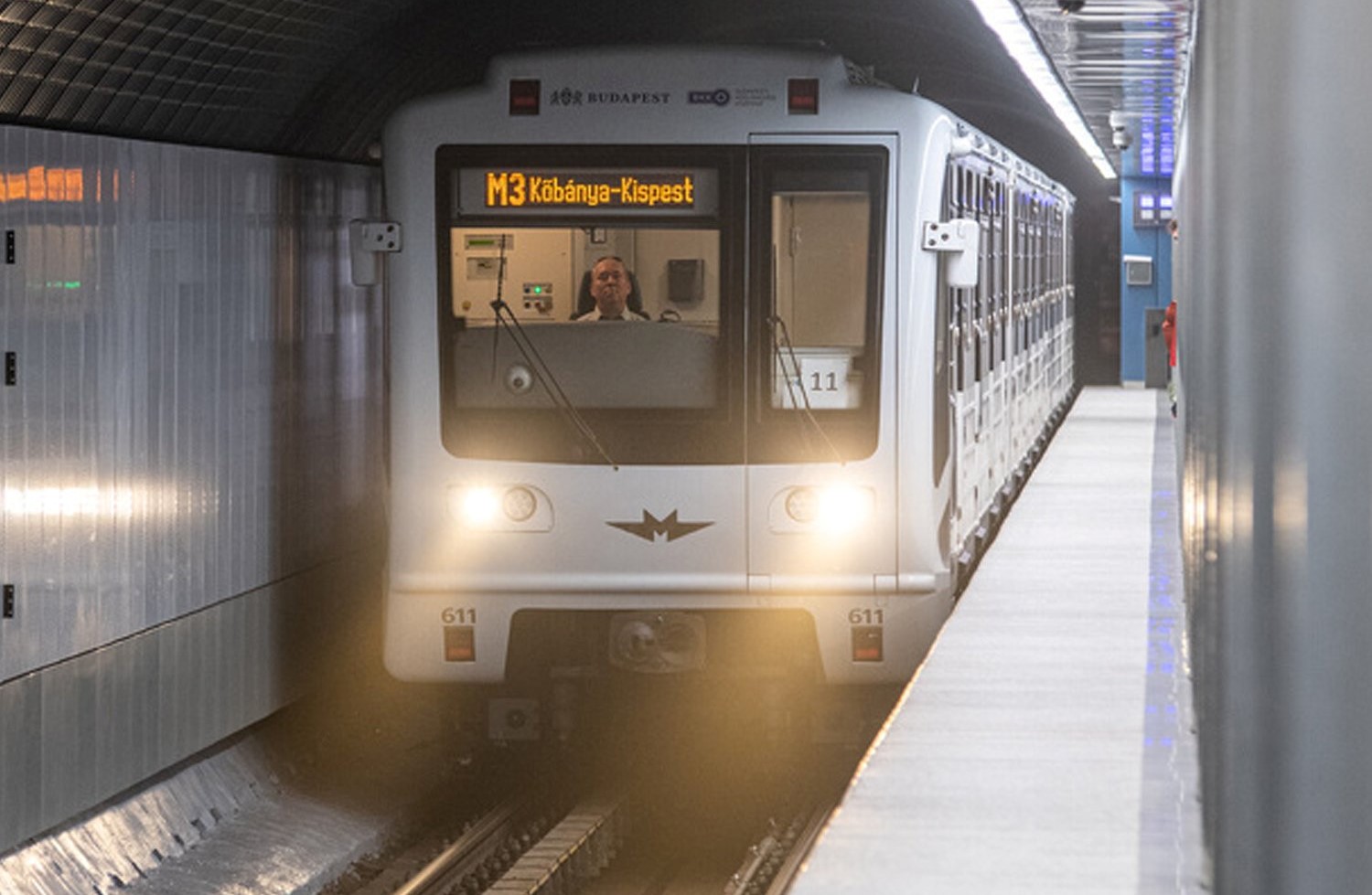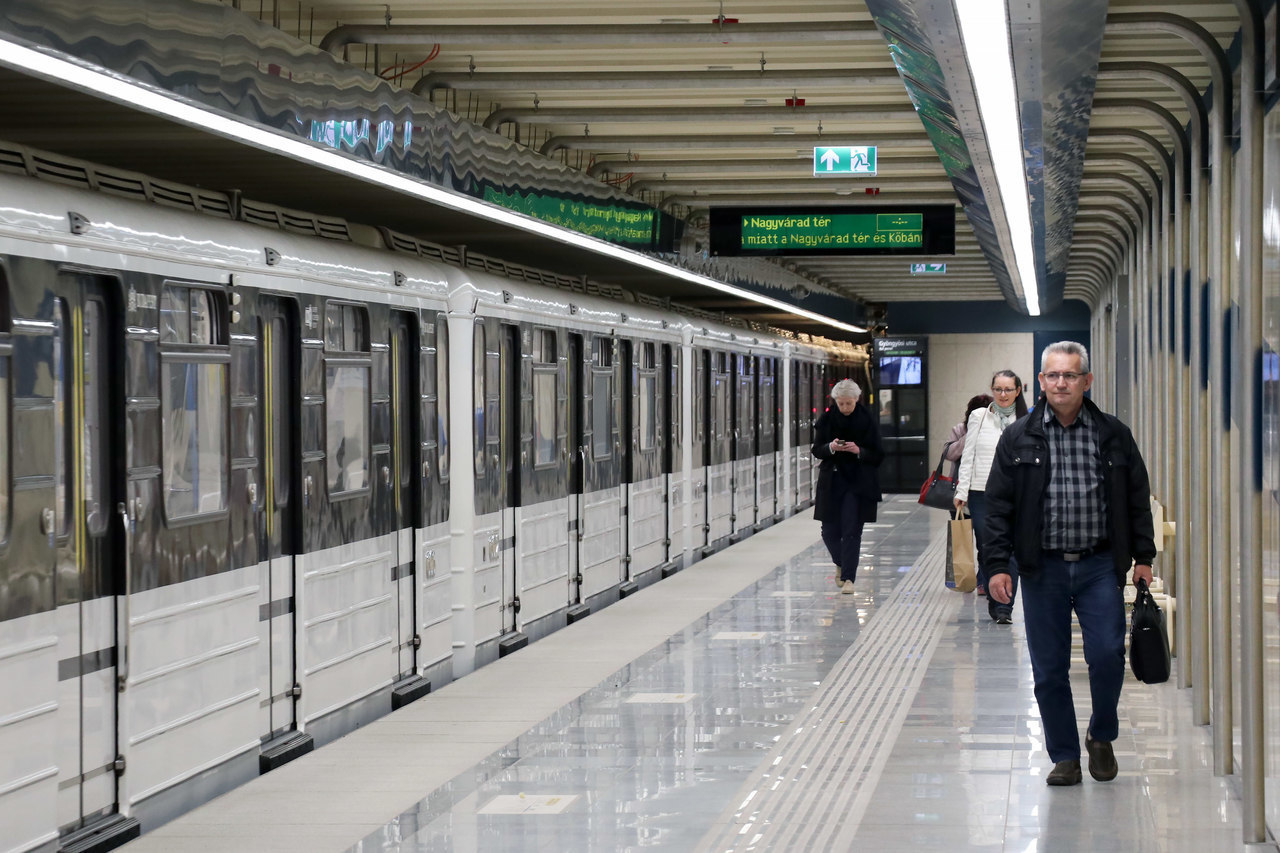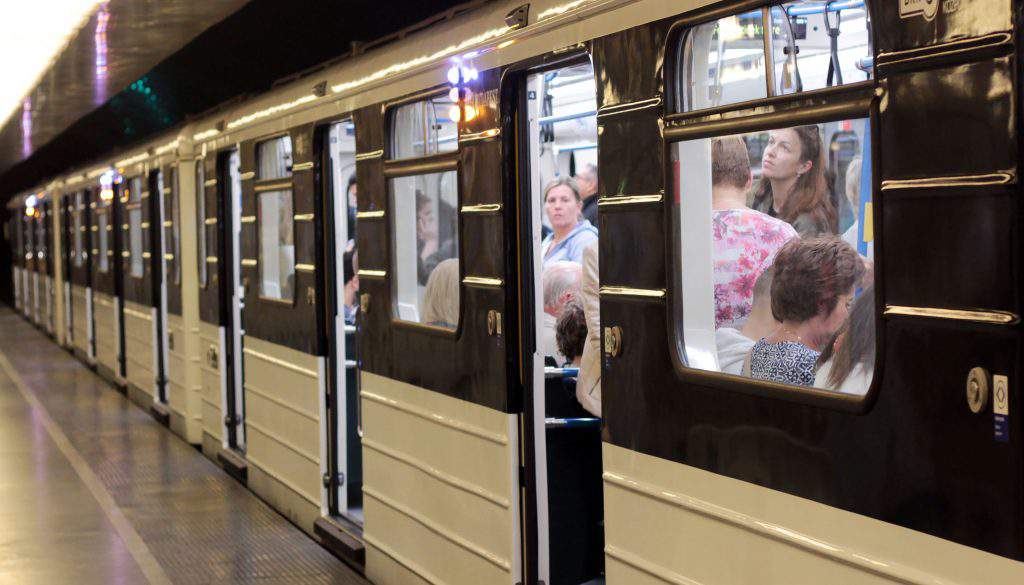Beware: Trains running on busiest Budapest metro line will be super hot this summer!

Without air-conditioning, the trains running on Budapest’s blue metro line (M3), the busiest one of Budapest’s underground network, will be super hot again during the summer.
According to 444.hu, the public procurement process concerning the air conditioning of the trains commuting on the M3 metro line is in a negotiation phase, Budapest Transport Company (BKV) wrote to Népszava, a Hungarian daily. The laconic statement did not mention that without a subcontractor, the 222 trains carrying hundreds of thousands of passengers on the line would lack air conditioning.
Former mayor believed the metro does not need air conditioning
And considering the heat records already broken in Hungary this year, we should expect a sweltering summer again. For example, because of the hot spring months, the mosquito control program at Lake Balaton will start one month earlier than before.
Building air conditioning in the trains did not appear in the BKV’s 2024 business planning, a document already accepted by the Municipal Council of Budapest.
István Tarlós, the former, Orbán government-ally mayor of Budapest, thought in 2017 that they would be able to operate the M3 metro line without air conditioning. He said the metro runs 25 metres underground, so sunlight cannot reach it. He compared air conditioning to attaching a restaurant train to each metro train as a possible passenger claim after the air conditioning.

The busiest Budapest metro carriages are extremely hot
Gergely Karácsony, the joint opposition-backed mayor of Budapest, measured 34.8 °C (94.64 °F) in an M3 carriage in June 2019 during the municipal election campaign. Afterwards, he promised retrofit air conditioning and in October, he won the elections.
The Russian Metrowagonmash built the trains running on the M3 metro line in 2016 but with many errors. The Tarlós-led Budapest City Council did not order air conditioning to reduce the costs. A retrofit climatisation is not easy.

Public procurement for climatisation
First, it was a question of whether the trains could bear the weight of the devices. Later, it became clear that retrofit air conditioning needs the approval of the Russian producer to retain the warranty.
BKV announced a tender in May 2021 for the retrofit air conditioning project. Three applicants submitted the needed documents, but only two remained: Liberatus Hungary Ltd. and Knorr-Bremse Vasúti Jármű Rendszerek Hungária Ltd. However, Budapest refused to sign a contract due to the financial hardships caused by the COVID-19 pandemic.

Air conditioning of the M3 metro line would be expensive
The estimated costs ranged between HUF 6-10 billion (EUR 15-25 million) in 2021. Since then, inflation increased that sum considerably.
Ambrus Kiss, one of the deputy mayors of Budapest, said retrofit air conditioning is not a matter of money but Russian approval. Without the Russian company’s green light, they could risk the manufacturer’s warranty.
According to an investigation ordered by Gergely Karácsony, the Metrowagonmash produced the new M3 trains with 18 serial errors. Most of these were repaired, BKV wrote, but did not give details for Népszava.
37 Russian metro trains commute on the M3 line containing six carriages. Five trains are now waiting for reparations. In peak time, BKV needs at least 29+2 trains to operate the line properly. That is the number BKV has now, so they cannot lack any of the trains running.
Read also:
- Budapest’s metro line may face closure due to the hazardous state of carriages – Read more HERE
- Budapest starts metro and tram development – click HERE for more details
Source:






